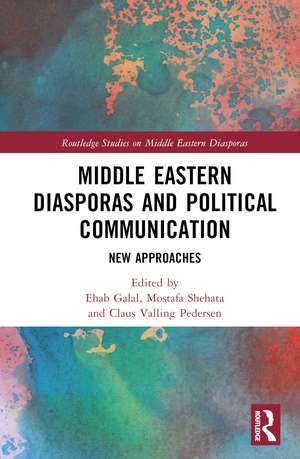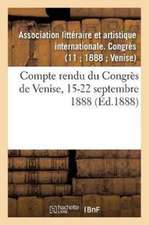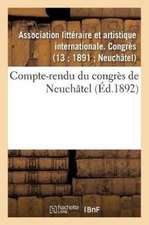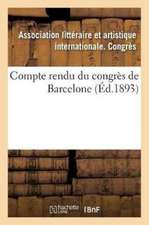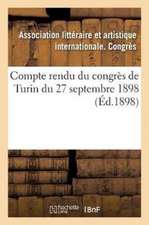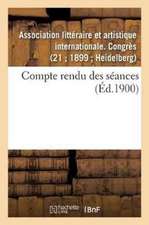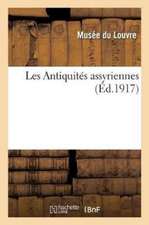Middle Eastern Diasporas and Political Communication: New Approaches: Routledge Studies on Middle Eastern Diasporas
Editat de Ehab Galal, Mostafa Shehata, Claus Valling Pedersenen Limba Engleză Hardback – 14 aug 2023
Taking an interdisciplinary approach, incorporating political and intercultural communication, the contributors investigate the rationale for diasporic politics, as well as the role of the transnational media in shaping diasporic political mobilization. This analysis of the media, situated within specific case studies, encompassing Afghani, Armenian, Bahraini, Egyptian, Lebanese, Syrian, Tunisian, and Turkish diasporic communities, reveals the variegated ways it influences diasporic politics and facilitates political action, as well as its influence on democratic actors residing in the Middle East. These new insights into Middle Eastern diasporas, political communication, and political mobilization are based on developments in the Middle East since 2011, and ultimately highlight how diaspora groups in the West relate to the situation in the Middle East, particularly in their countries of origin.
The book is important reading for students and researchers working in political/intercultural communication and diasporic politics, as well as those with a general interest in the Middle East.
| Toate formatele și edițiile | Preț | Express |
|---|---|---|
| Paperback (1) | 310.01 lei 22-36 zile | +17.55 lei 6-12 zile |
| Taylor & Francis Ltd. – 18 dec 2024 | 310.01 lei 22-36 zile | +17.55 lei 6-12 zile |
| Hardback (1) | 935.66 lei 22-36 zile | +23.17 lei 6-12 zile |
| Taylor & Francis – 14 aug 2023 | 935.66 lei 22-36 zile | +23.17 lei 6-12 zile |
Preț: 935.66 lei
Preț vechi: 1028.19 lei
-9% Nou
Puncte Express: 1403
Preț estimativ în valută:
179.07€ • 186.00$ • 148.74£
179.07€ • 186.00$ • 148.74£
Carte disponibilă
Livrare economică 13-27 ianuarie 25
Livrare express 28 decembrie 24 - 03 ianuarie 25 pentru 33.16 lei
Preluare comenzi: 021 569.72.76
Specificații
ISBN-13: 9781032430294
ISBN-10: 103243029X
Pagini: 198
Ilustrații: 6 Tables, black and white; 6 Halftones, black and white; 6 Illustrations, black and white
Dimensiuni: 156 x 234 x 13 mm
Greutate: 0.53 kg
Ediția:1
Editura: Taylor & Francis
Colecția Routledge
Seria Routledge Studies on Middle Eastern Diasporas
Locul publicării:Oxford, United Kingdom
ISBN-10: 103243029X
Pagini: 198
Ilustrații: 6 Tables, black and white; 6 Halftones, black and white; 6 Illustrations, black and white
Dimensiuni: 156 x 234 x 13 mm
Greutate: 0.53 kg
Ediția:1
Editura: Taylor & Francis
Colecția Routledge
Seria Routledge Studies on Middle Eastern Diasporas
Locul publicării:Oxford, United Kingdom
Public țintă
Postgraduate and Undergraduate AdvancedCuprins
1. Mobilizing and Mediatizing Middle Eastern Diaspora 2. Diasporic Political Communication among Arabs in Europe: From Online Campaigning to Friendship Networks 3. The Power of the Media in Mobilizing Diaspora Support for Syrian Armenians: The Case of Kessab 4. Beirut from 'October Revolution' of 2019 to the 4th August Explosion in 2020: Transnational Solidarity, Social Media and Affective Communities 5. The Webinar as Tool for Diasporic Political Communication to Counter Mis/disinformation About Syria 6. Arab Social Media News in Sweden: Site of Information or Site of Struggle? 7. Digital Diaspora: The Case of Farkhunda and Afghan Women's Resistance 8. Whom do the Diaspora Members Interact with when there are Elections in the 'Homeland?' 9. Making an Impact: The Role of Media Activism among Bahrainis in London and Denmark 10. Reporting on Syrian Conflict from Exile: Examining Advocacy Strategies in Diaspora Journalists' Online News
Notă biografică
Ehab Galal is an Associate Professor at the University of Copenhagen. He is the Project Leader of "Mediatized Diaspora: Contentious Politics among Arab Media Users in Europe." His research focuses on Arab media, Islamic television, regime-critical media, media and migration, Arab media audiences, and mediatized diaspora.
Mostafa Shehata is a Lecturer of Media and Digital Communication in the Faculty of Mass Communication, Menoufia University, Egypt, as well as Associate Researcher at the University of Copenhagen, Denmark. He holds a PhD from Roskilde University in Denmark. His research focus is on political communication, intercultural communication, social movement, migration, and the Middle East.
Claus Valling Pedersen is an Associate Professor in Persian at the Department of Cross-Cultural and Regional Studies, University of Copenhagen. His main research interest is in modern literature from Iran, spanning the period from about year 1900 until today, and most of his publications are about literature. He has also completed research on contemporary Iranian history, society, and religion.
Mostafa Shehata is a Lecturer of Media and Digital Communication in the Faculty of Mass Communication, Menoufia University, Egypt, as well as Associate Researcher at the University of Copenhagen, Denmark. He holds a PhD from Roskilde University in Denmark. His research focus is on political communication, intercultural communication, social movement, migration, and the Middle East.
Claus Valling Pedersen is an Associate Professor in Persian at the Department of Cross-Cultural and Regional Studies, University of Copenhagen. His main research interest is in modern literature from Iran, spanning the period from about year 1900 until today, and most of his publications are about literature. He has also completed research on contemporary Iranian history, society, and religion.
Recenzii
"This is an important book that fills a gap in the literature about the role of communication in facilitating diasporas’ political participation in their countries of origin, host societies, and global politics. The book provides insightful analysis of the way diaspora communities use media to build transnational connections, based on fresh data collected among diaspora groups in Europe and the USA. The well-rounded analysis in each chapter heightens the book’s relevance and contribution."
Noha Mellor, Professor of Media, University of Sharjah, UAE
"This book is a must-read for those interested in the relationship between the Middle East, diaspora communities, and media post-2011. Its insightful analysis, drawn from media content analysis and interviews, fills a critical gap in our understanding of these complex relationships. The thought-provoking case studies shed light on media's impact on shaping and strengthening connections between communities, particularly diaspora communities based in Western countries. The comprehensive insights into the utilization of digital media for political action and collective mobilization make this book a valuable and necessary contribution to the discourse on the Middle East and its diaspora communities."
Tourya Guaaybess, European University Centre, Université de Lorraine, CREM
Noha Mellor, Professor of Media, University of Sharjah, UAE
"This book is a must-read for those interested in the relationship between the Middle East, diaspora communities, and media post-2011. Its insightful analysis, drawn from media content analysis and interviews, fills a critical gap in our understanding of these complex relationships. The thought-provoking case studies shed light on media's impact on shaping and strengthening connections between communities, particularly diaspora communities based in Western countries. The comprehensive insights into the utilization of digital media for political action and collective mobilization make this book a valuable and necessary contribution to the discourse on the Middle East and its diaspora communities."
Tourya Guaaybess, European University Centre, Université de Lorraine, CREM
Descriere
This edited book explores the development and reconfiguration of Middle Eastern diasporic communities in the West in the context of increased political turmoil, civil war, new authoritarianism, and severe constraints on media in the Middle East.
